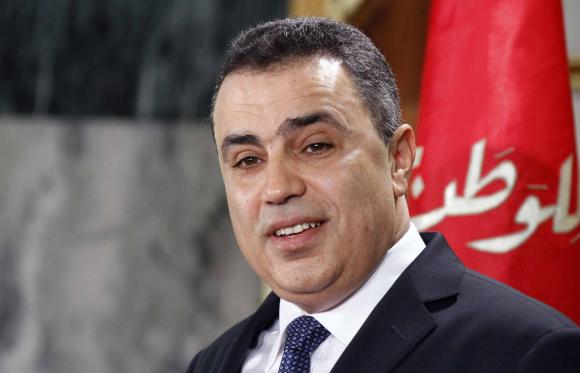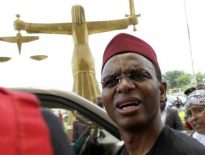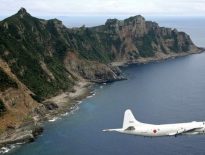(Reuters) – Tunisia’s new Prime Minister Mehdi Jomaa on Tuesday appealed to the international community for financial support to help the North African country take the last steps in its transition to a full democracy.

Three years after the uprising against autocrat Zine el-Abidine Ben Ali inspired similar revolts across the region, Tunisia on Monday adopted a new constitution.
The country’s ruling Islamists and secular opposition have set aside their differences to allow Jomaa’s caretaker government to lead until elections are held later this year — a breakthrough deal that ended months of political deadlock.
Jomaa, a technocrat who once ran an aerospace parts company in Paris, has appointed a non-political cabinet to bring stability to Tunisia, which must tackle a large budget deficit and the threat of Islamist militants.
The friends of Tunisia and the international institutions should support Tunisia financially in this sensitive phase of democratic transition, Jomaa said in an address to the national assembly, which was approving his cabinet.
This phase will need some economic reforms and sources of financing.
International lenders want a cut in subsidies as well as other reforms to trim Tunisia’s widening budget deficit, which the government expects to jump to 6.8 percent of gross domestic product in 2013, compared to 6 percent in 2012.
Tunisia relies heavily on tourism from Europe and remittances from abroad. Protests broke out recently over a tax increase, forcing the government to roll back the measure.
Tunisian officials say the recent political and economic strides forward should be enough to persuade the International Monetary Fund to release a second, $500 million tranche from a $1.5 billion credit.
Jomaa has put ministers with experience in international organizations into key posts. The new finance minister has worked for the African Development Bank, and the foreign minister for the United Nations.
Tunisia’s progress has been praised as model that contrasts sharply with North African neighbors Egypt and Libya, who are battling to overcome turmoil and violence in messy transitions since they ousted their own rulers.
Jomaa was appointed after ruling Islamists agreed to step down late last year, a compromise with their secular opponents to end a crisis that threatened to upend the country’s political transition after its 2011 Arab Spring revolt.
In Egypt, the democratically elected Islamist president was deposed by the army last year, and in Libya, former rebels who once fought Muammar Gaddafi often make armed demands on a transitional government that is still in flux.
(Writing by Patrick Markey; Editing by Raissa Kasolowsky)





